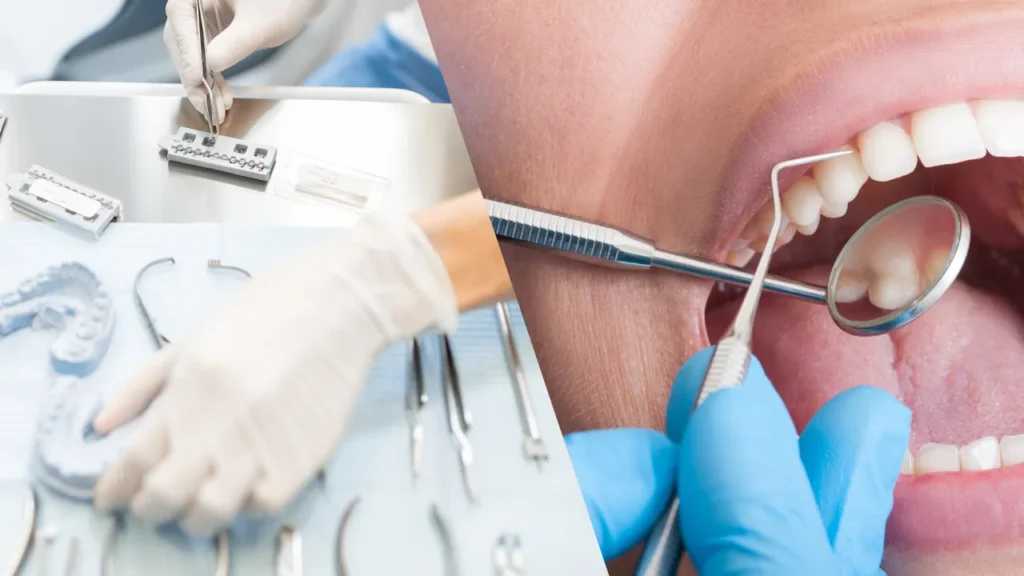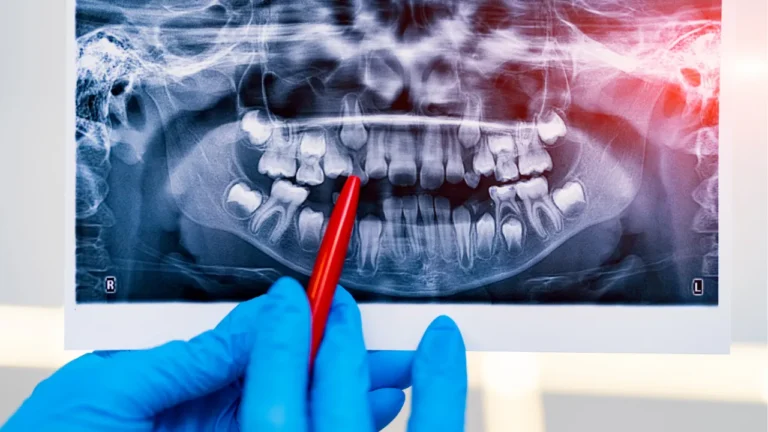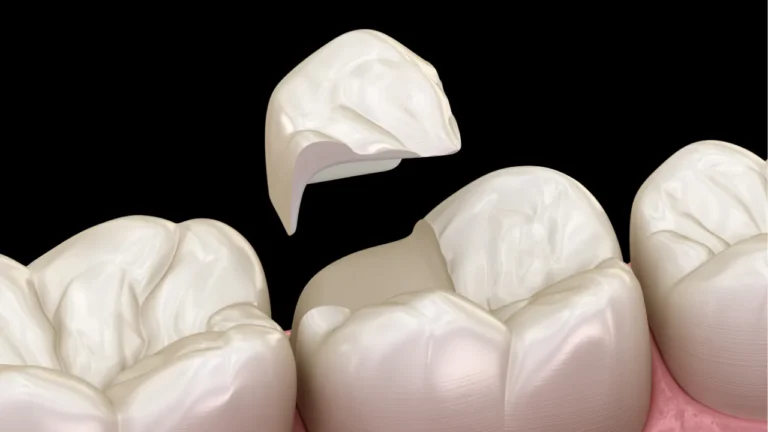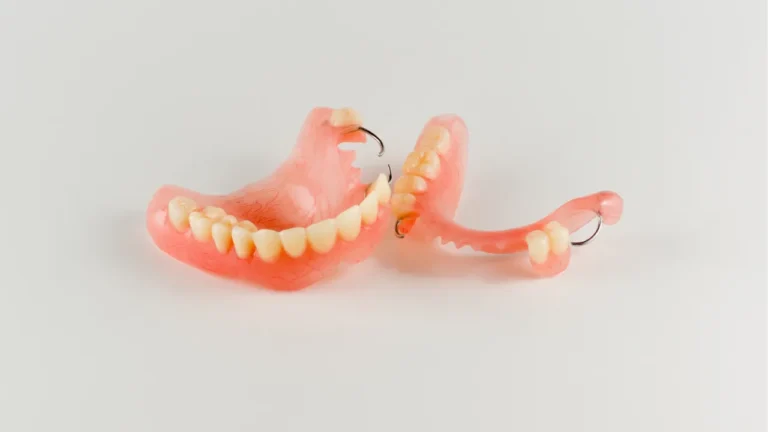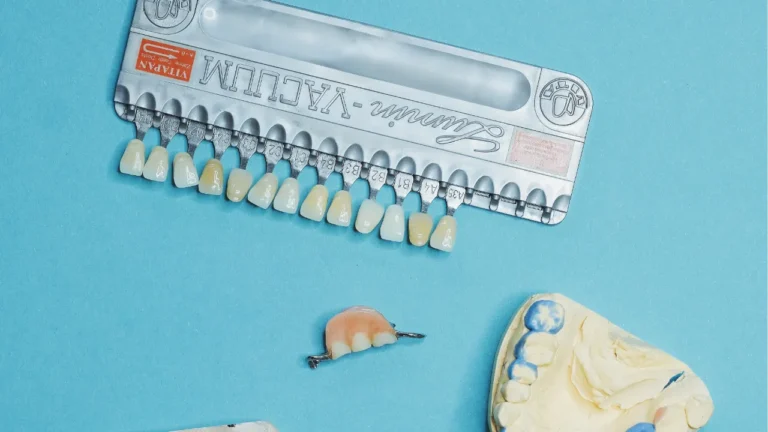While both orthodontists and dentists focus on oral health, their roles aren’t the same.
Dentists handle a wide range of general care like fillings, cleanings, and treating gum disease, while orthodontists specialize in correcting misaligned teeth and jaws with treatments such as braces or aligners.
Knowing the difference helps you understand which professional to see for your specific needs and ensures you get the right care.
In this post, we’ll break down what sets orthodontists apart from dentists and when you should visit each one.
Quick Summary
- Average cost in Pretoria: R30,000 – R60,000
- Main cost factors: complexity, treatment length, accessories, orthodontist’s experience, insurance coverage
- What’s included: consultation, custom aligners, follow-ups, scans, retainers
- Payment options: financing plans and potential insurance coverage
- Benefits: discreet, comfortable, removable, and effective
What Is a Dentist?
A dentist is a healthcare professional who specializes in the diagnosis, prevention, and treatment of various oral health issues. Dentists are responsible for a wide range of services related to the overall health of your teeth, gums, and mouth.
Services Provided by Dentists
- Routine Checkups and Cleanings: Dentists conduct regular checkups to ensure the overall health of your teeth and gums. They clean your teeth, remove plaque and tartar, and provide guidance on maintaining good oral hygiene.
- Cavity Treatment and Fillings: Dentists diagnose and treat cavities, placing fillings to restore the structure of your teeth.
- Gum Disease Treatment: Dentists treat gingivitis and more advanced forms of gum disease by performing cleanings, root planing, and sometimes even surgery.
- Teeth Whitening: Dentists offer both in-office and at-home whitening treatments to brighten your smile.
- Extractions: Dentists perform tooth extractions, whether it’s for a severely decayed tooth, impacted wisdom teeth, or other reasons.
- Restorative Procedures: Dentists restore damaged teeth with crowns, bridges, and implants to improve functionality and aesthetics.
In general, a dentist provides the foundational care needed to maintain and preserve the health of your teeth and gums.
What Is an Orthodontist?
An orthodontist, on the other hand, is a dental specialist who focuses on diagnosing, preventing, and treating misalignments of the teeth and jaw.
After completing dental school, orthodontists undergo additional years of training and education to gain expertise in the field of orthodontics.
Services Provided by Orthodontists
- Braces and Clear Aligners: Orthodontists specialize in the design, placement, and management of braces and clear aligners like Invisalign. These devices are used to straighten teeth, align the bite, and correct dental issues such as overcrowding or gaps.
- Jaw Alignment Treatments: Orthodontists also treat issues related to jaw misalignment, such as overbites, underbites, and crossbites. They may use braces, headgear, or other devices to reposition the jaw.
- Retainers: After braces or clear aligner treatment, orthodontists provide retainers to help maintain the new position of your teeth.
- Orthognathic Surgery Referrals: In severe cases of jaw misalignment, orthodontists may refer patients for surgery to correct bone and skeletal problems.
Orthodontics is highly specialized, and the primary goal is to improve both the appearance and functionality of your teeth and bite.
Key Differences Between an Orthodontist and a Dentist
1. Training and Education
- Dentists complete a 5-6 year dental degree program that covers all areas of general dentistry. They are trained to treat a broad range of dental issues.
- Orthodontists complete additional training after dental school, typically 2-3 years of specialized education focused on orthodontics. They gain expertise in aligning teeth, jaws, and bites.
2. Area of Expertise
- Dentists provide general dental care, including checkups, cleanings, fillings, and extractions.
- Orthodontists specialize in treating misalignments of the teeth and jaw, using braces, clear aligners, and other orthodontic appliances.
3. Types of Treatments
- Dentists offer preventive, diagnostic, and restorative treatments, such as fillings, crowns, and teeth whitening.
- Orthodontists focus specifically on treatments that correct teeth alignment and jaw positioning, including braces and clear aligners.
4. Referrals
In many cases, if your dentist identifies a misalignment or bite issue that requires orthodontic treatment, they will refer you to an orthodontist. For general dental issues, however, you would visit your dentist first.
When Should You See a Dentist?
You should visit a dentist for regular checkups and cleanings, ideally every six months.
If you experience issues such as cavities, gum disease, or tooth pain, your dentist is the first point of contact for diagnosis and treatment.
Additionally, dentists can address many cosmetic concerns, such as teeth whitening or restorative treatments like crowns and bridges.
When Should You See an Orthodontist?
You should see an orthodontist if:
- You or your child need braces to straighten teeth.
- You have bite issues such as overbites, underbites, or crossbites.
- You are interested in clear aligners like Invisalign to improve your smile.
- You need a retainer after completing orthodontic treatment.
- You experience difficulty chewing or speaking due to teeth or jaw misalignment.
If your dentist notices any of these issues during a checkup, they may refer you to an orthodontist for further evaluation.
How to Choose Between an Orthodontist and a Dentist in Pretoria
At Every Smile Dentistry, we offer both general dental care and orthodontic services, so you don’t have to go anywhere else for comprehensive oral health treatment. Whether you need a routine checkup or specialized orthodontic care, we are here to help.
If you’re unsure whether you need a dentist or an orthodontist, the key is to assess your oral health needs:
- For general dental care, such as cleanings, fillings, and checkups, visit a dentist.
- For orthodontic treatment, such as braces or Invisalign, visit an orthodontist.
Our experienced team at Every Smile Dentistry can provide both services, ensuring you receive the best care for your teeth and smile.
Conclusion
Understanding the difference between a dentist and an orthodontist is important for ensuring that you receive the right care for your needs.
While dentists provide essential, general oral health services, orthodontists specialize in the treatment of misaligned teeth and jaws.
Whether you’re maintaining your oral health with a dentist or working on improving your smile with an orthodontist, both play essential roles in your journey to a healthy, beautiful smile.

